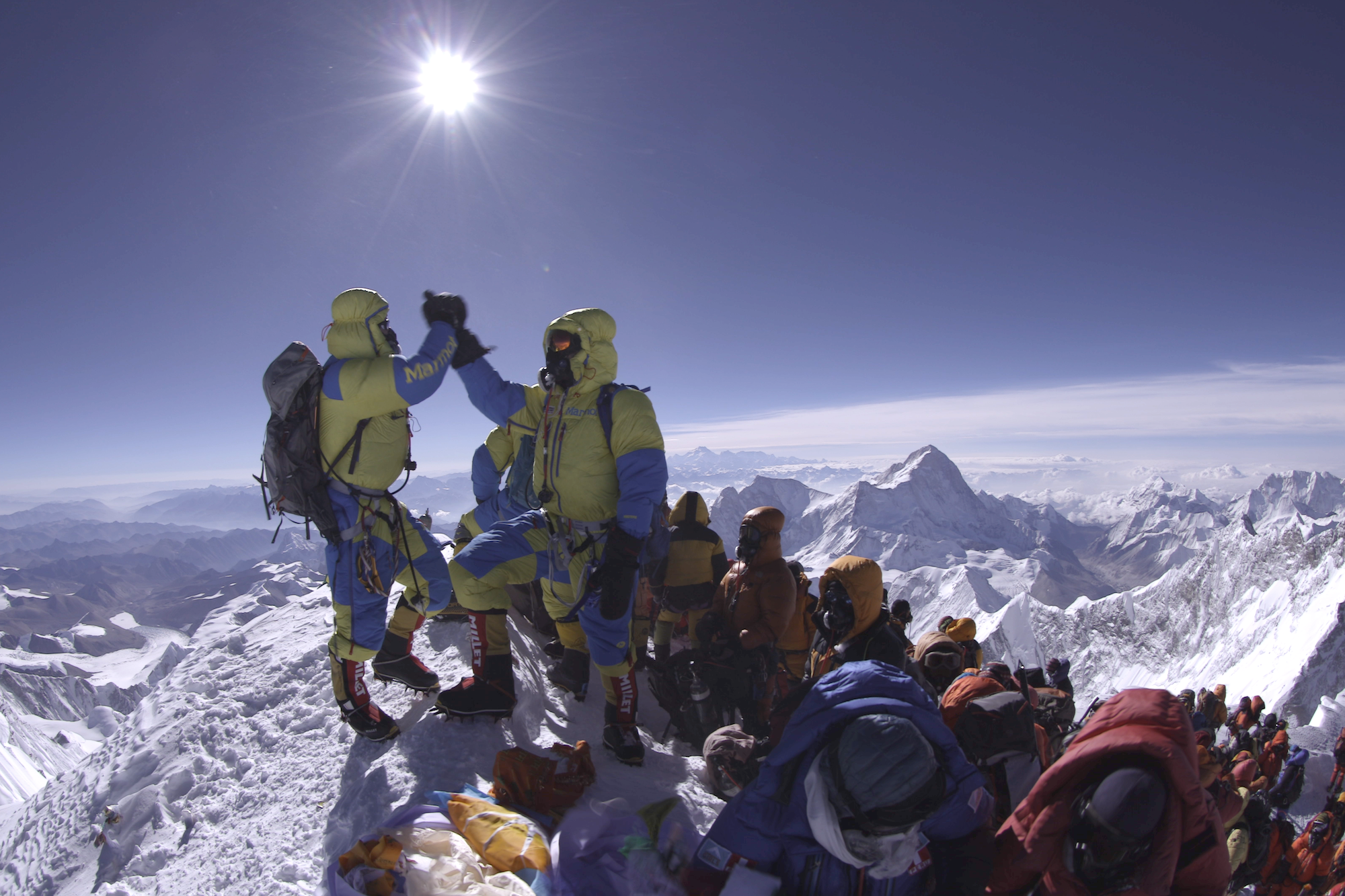COVID-19's Devastating Blow to the Himalayan Sherpas and the Personal Efforts to Aid Their Recovery My adventure company lost our climbing season, but the Sherpas lost their sole means of livelihood.
By Lukas Furtenbach Edited by Dan Bova
Opinions expressed by Entrepreneur contributors are their own.

The global COVID-19 pandemic is wreaking havoc on economies around the world, but probably no harder hit are the already depressed villages that sit in the shadow of Mount Everest on the Himalaya Mountain range. With access to the mountain now officially shut off to adventure-seeking climbers, the short Everest climbing season is over before it really began, and so with it goes all the tourism-related commerce that keeps the local economy afloat.
Every year, Sherpas sign on with climbing expeditions and trekking groups to serve as "the muscle" behind the Herculean effort of getting gear, supplies and people up to the world's highest altitudes. For almost all of them, that work is their only source of income for the entire year, and now that work is gone.
Related: From Climbing Everest to Being Trapped on a Deserted Island — Confessions of a Serial Adventurer
Sherpas are one of the several ethnic groups native to the mountainous regions of eastern Nepal and the Himalayas. Acclimated to high-altitude living, they make extraordinary, almost super-human, partners and guides to one of the most dangerous activities in the world. And they make it look easy.
This year, however, both China and Nepal have officially shut down the climbing season in efforts to contain a COVID-19 breakout in this isolated and remote area. This left my expedition company, Furtenbach Adventures, scrambling to communicate the unfortunate news to all our clients as we started to cancel and disassemble the arrangements and contracts that make up one of the most complex logistical expeditions you could ever hope to manage.
And then our attention turned to our climbing partners, the Sherpas. We had lost our climbing season, but they had lost their sole means of livelihood. While it's true we had little resources to help (our entire business is now on hold), we actually pulled together a portion of the money they would have earned on our Everest climbs and paid it to them. We also helped out the kitchen staff and other assistants that make life at our base camps possible.
We paid as much as we could — to hopefully provide sustenance for them and their families. And when it wasn't enough, we reached out to our clients and asked if they were willing to donate a small percentage of their deposits to add to our makeshift Sherpas relief fund. Despite the disappointing news and dashed dreams of climbing Everest, nearly every one of our clients generously donated funds to the cause. In the end, we helped our full team of 23-Sherpas salvage a little bit of the season, financially.
Related: 3 Business Lessons I Learned While Summitting Mt. Everest Without Supplemental Oxygen
Mingmadorchi Sherpa, our "Sirdar" or lead Sherpa — and a close personal friend of ours for many years — is from a small village called Tashi Goun. Mingmadorchi is 38 years old and already has climbed Everest 19 times. This season would have been his 20th successful summit. In addition to Everest, he has climbed multiple challenging peaks in the region, including the notorious K2, Makalu, Cho Oyu, Dhaulagiri and Lhotse. In my eyes, he is the strongest person working in high altitude, and I look forward to having him along on many more expeditions.
Most of the Sherpas are professional mountain guides with no other profession to fall back on. Right now, some of them are on their way back to their villages to help their families with farming. Others are headed to Kathmandu hoping to secure some other form of work. The situation is devastating. And unlike social safety-net programs available to us in developed countries, there will be no government "bailout" for these Sherpas coming from Nepal or China.
Related: 5 Lessons I Learned From Trekking Mt. Everest
As one of my lead Sherpas expressed it to me, "Your business is my business. If you go broke, we go broke. Together." It's a tough time for the climbing business. It's not as though Everest was shut down (as has happened in the past) and we can move on to other conquests. All our expeditions, worldwide, have been affected by the pandemic outbreak. From South America to the Alps. But as our Sherpas wisely remind us … we are all in this together.








